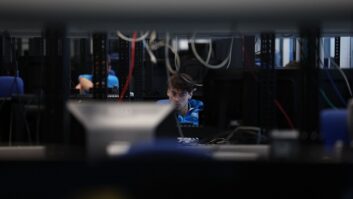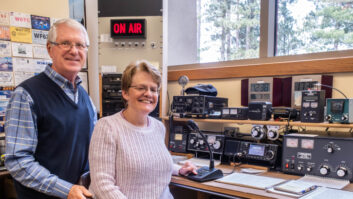Albert Einstein once said that the true sign of intelligence is not knowledge but imagination. Contemplating this, our thinking should bring us to the further awareness that intelligence and knowledge are two galaxies, separate yet linked in a unique way.
As near as we can tell, what sets humans apart from the copious other fauna that populates our planet is our awareness of being. We’re sentient. We are aware of our selves, of the past of humankind (history) and of a future pending. As near as human and animal anthropologists can determine, we’re unique.
What Einstein projects is probably as important a defining human quality: the capability of imagining an alternative to our instinctual knowledge. Imagination couples our intelligence and knowledge, producing a new solution.
People who have strong capabilities in this area quest towards the high arc of humanity. They are desirable and valuable in just about every circumstance. For the crass amongst us, this makes them more marketable.
First, let’s clarify this knowledge issue. Humanity has been exploring the world, the forces in that world and the human dynamics that create our social universe since cogent thought began. Remember that great opening scene in “2001” in which the simians use a bone as a weapon? Maybe that’s when cogent thought began (not in the movie but in that long-ago time).
The continuous exploration that began so long ago has produced knowledge. At some point this moved into verbal and, as civilization advanced, written form, so that it could be passed more accurately through generations. We hope the process will continue until the core of the last mystery is resolved and annotated.
Most of us spend our cognitive time and energy using the body of knowledge; but few addto it. To do that, we must go where no man has gone before and enter the unexplored country. How? Via that imagination thing we were talking about, and using our intelligence.
How often in tech history have we seen an item, a tiny clue emerge — yet a corresponding imaginative inspiration eludes us? Edison’s crew, trying to alleviate the darkening of the insides of early light bulbs, added a third element in the envelope, hoping to attract the carbon dust. They found a current flow on this wire but didn’t know what to make of “the Edison effect.” A few years later, DeForest imagined a use, the triode tube, and launched our electronic communication industry.
There is a middle ground between the poles of intelligence and knowledge, and that is innovation. You use our body of knowledge in a novel, imaginative way — hopefully so novel in application as to be useful to you and others, and you receive recognition for it. Sometimes your idea becomes the standard design solution.
You’ve seen barrels on the highway, usually made of recycled plastic, that provide a de-acceleration phalanx ahead of immovable objects to avert a deadly impact. These are called Fitch barriers; they were an innovation by a British engineer (a distant relative), and are now the standard solution for ameliorating the catastrophe of a dead stop at high speeds.
We’ve all imagined a few such designs; they might run the gamut from extremely innovative (perhaps patentable) to merely useful (these fall into the “attaboy” category). But did we add to the body of knowledge? No. Innovation is as close as most of us gnother axiom: “Knowledge is power.” I have always felt that the more you know, the better your decisions. For us radio tech types, these decisions can take many forms, as distinct as fast precise troubleshooting or in the area of engineering judgments about how best to proceed on a cost basis.
People ask me why I charge so much as a consulting engineer. My favorite response is from Werner Heisenberg, author of the Uncertainty Principle: “My definition of an expert (read: consulting engineer) is someone who knows the most expensive mistakes in their field and how to avoid them.” Look at this as a form of “knowledge is power.”
At minimum, knowledge can enrich you on multiple levels. An apocryphal story is attributed to an experience of Charles Steinmetz, who in his time conquered physical challenges (he was a dwarf with related health issues), prejudice (he was an immigrant, essentially a refugee) and jealousy (others envied his stunning innovative intellect). Steinmetz had an extraordinary career in industry, mainly at GE, pioneering alternating current technology. Occasionally his work included consultant engineering.
During his GE period, so the story goes, Henry Ford had a technical problem on a production line in Dearborn on which Steinmetz had provided design input. The line was stalled and the factory not producing. Steinmetz was called in to “consult.” After a few days of inspection, he found the problem in an alternator and noted the location with a chalk mark. After correction work, the line got going again.
The legend continues that he sent Ford an invoice for $10,000, a lot of money at this time. Reportedly Ford was outraged at the amount for such a short period of investigation and demanded an itemization, hoping to chagrin Steinmetz into a reduction.
Steinmetz response was, essentially: One dollar for identifying the problem area with chalk and $9,999 for knowing what the problem was.
Knowledge is sometimes power you can take to the bank.
So hopefully this meandering monograph will bring to the forefront of your thinking that you should not just accumulate knowledge from reading all those “Books by the Bed,” or lock yourself into a single set of standard solutions to get along,
BUT
be most human, saddle up your high intelligence horse, get in the dreamy saddle and achieve your highest potential by imagining, speculating, reaching.
Now’s a great time to start. Your contribution to the body of knowledge awaits.
Charles S. Fitch, P.E., W2IPI, is a registered professional consultant engineer, broadcast consultant, licensed master electrical contractor, former radio station owner and former radio/TV director of engineering. He writes the columns Certification Corner in Radio World Engineering Extra and Milestones in Radio World.











